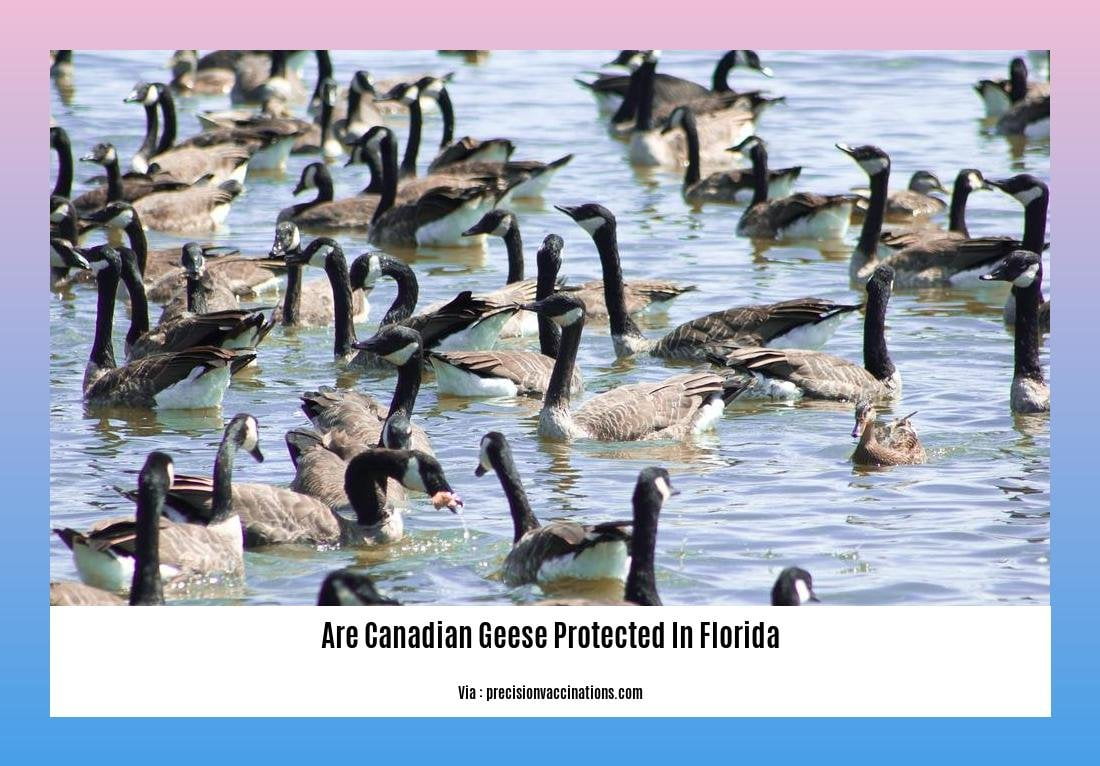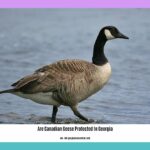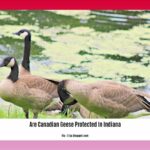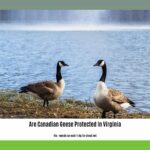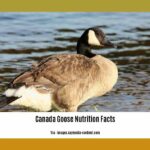Are Canadian Geese Protected in Florida: Understanding Wildlife Policies and Conservation Efforts
In the diverse landscapes of Florida, the captivating presence of Canadian geese is undeniable. These remarkable birds, known for their majestic flights and distinctive honks, have become an integral part of Florida’s wildlife population. However, as the state grapples with the immense task of preserving its rich biodiversity, questions arise about the protection and conservation efforts surrounding Canadian geese. This article delves into the intricacies of wildlife policies and sheds light on whether Canadian geese are indeed protected in Florida, unraveling the complex web that connects these magnificent creatures to the legal framework and the ever-evolving field of conservation.
Key Takeaways:
- Canada geese are protected under the Migratory Bird Treaty Act (MBTA) in the United States, including Florida. Florida has adopted and enforces the MBTA through its own rules and regulations.
- Hunting and capturing Canada geese outside of designated hunting seasons is prohibited in the United States and Canada to ensure population growth and conservation.
- In Florida, hunting Canada geese is allowed during designated hunting seasons, but individuals must possess the necessary permits and licenses.
- Canada geese have both positive and negative effects on ecosystems. They contribute to seed dispersal and nutrient cycling, but their large population sizes can lead to overgrazing, soil erosion, and water quality issues.
- Proper management and conservation efforts are necessary to maintain a balanced ecosystem and the protection of Canada geese.
Are Canadian Geese Protected in Florida: Understanding Wildlife Policies and Conservation Efforts
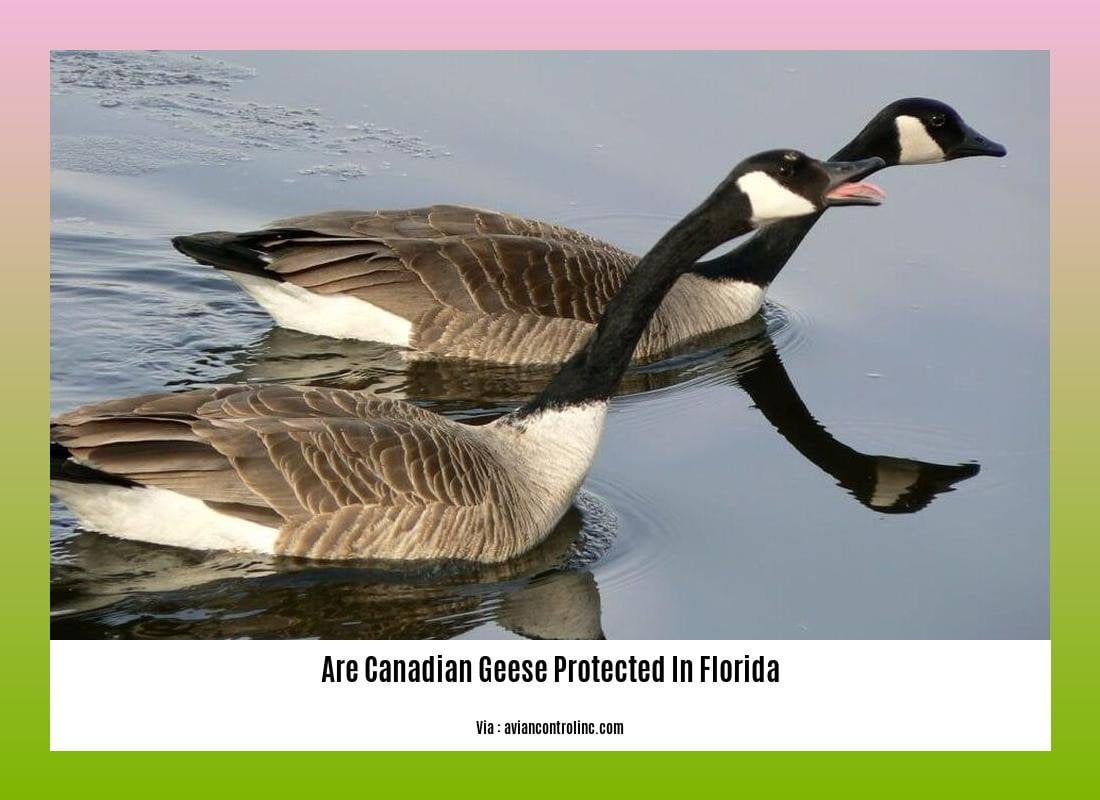
Introduction
Canada geese, also known as Canadian geese, are striking birds that are commonly seen in Florida. But are these majestic creatures protected in the state, and what is the legal framework surrounding their conservation? In this article, we will explore the legal protection status of Canadian geese in Florida, diving into the policies and conservation efforts in place to safeguard these beautiful birds.
Legal Protection of Canadian Geese in Florida
The answer is yes, Canadian geese are protected in Florida. These migratory birds are federally protected under the Migratory Bird Treaty Act (MBTA) in the United States. Florida, like other states, has adopted the MBTA and enforces it through Florida Rule 68A-16. This rule specifically addresses the protection of these birds and prohibits nest take.
Identification and Habitat
Canadian geese are easily identifiable by their large size, long necks, black heads, and white chin straps. Though not native to Florida, they are frequently spotted in the state throughout the year. These birds thrive in various habitats, including wetlands and coastal areas, where they find ample food and shelter.
Conservation Efforts and Threats
Protection and conservation of Canadian geese are critical for maintaining a balanced ecosystem. While they contribute to seed dispersal and nutrient cycling, their large population sizes can lead to overgrazing, soil erosion, and water quality issues. It is essential to manage their presence and preserve their habitats in a way that benefits both Canadian geese and other bird species.
Hunting Regulations
While Canadian geese are protected under federal law, hunting is permitted during designated hunting seasons in Florida. To legally hunt geese, individuals must hold specific permits and licenses, including a hunting license, a Florida waterfowl permit, a migratory bird permit, and a federal duck stamp. If hunting on a wildlife management area, additional permits may be required, and awareness of hunting seasons and bag limits is crucial.
Conclusion
In conclusion, Canadian geese are protected in Florida under the Migratory Bird Treaty Act, which is enforced through Florida Rule 68A-16. While these birds can be legally hunted during designated seasons, it is essential to adhere to the specific regulations and obtain the required permits. Understanding the significance of Canadian geese in the ecosystem and practicing responsible conservation efforts are key to preserving their populations and maintaining a balanced environment.
Sources:
[1] Florida Fish and Wildlife Conservation Commission. (n.d.). Canada Geese | FWC. Retrieved from myfwc.com/wildlifehabitats/profiles/birds/waterfowl/canada-geese/
[2] Bird Advisors. (n.d.). 8 Types Of Geese In Florida (Photo And ID Guide) – Bird Advisors. Retrieved from birdadvisors.com/geese-florida/
[3] Wikipedia. (n.d.). Canada goose. Retrieved from en.wikipedia.org/wiki/Canada_goose
[4] Birds and Wetlands. (n.d.). Geese in Florida: A Fascinating Look at These Waterfowl. Retrieved from birdsandwetlands.com/geese-in-florida/
[5] Federal Register. (2018). Migratory Bird Permits; Regulations for Managing Resident Canada Goose Populations. (“2018-08”). Retrieved from federalregister.gov/documents/2018/04/25/2018-08…
Are backyard fires allowed in Calgary? Find out the regulations and guidelines related to backyard fires in Calgary. are backyard fires allowed in calgary
Are Canadian geese protected in Georgia? Learn about the protection laws and measures in place for Canadian geese in Georgia. are Canadian geese protected in Georgia
Are Canadian geese protected in Indiana? Discover the legal status and conservation efforts for Canadian geese in Indiana. are Canadian geese protected in Indiana
Are Canadian geese protected in Virginia? Explore the laws and initiatives aimed at safeguarding Canadian geese in Virginia. are Canadian geese protected in Virginia
Habitat and Behaviors of Canadian Geese in Florida
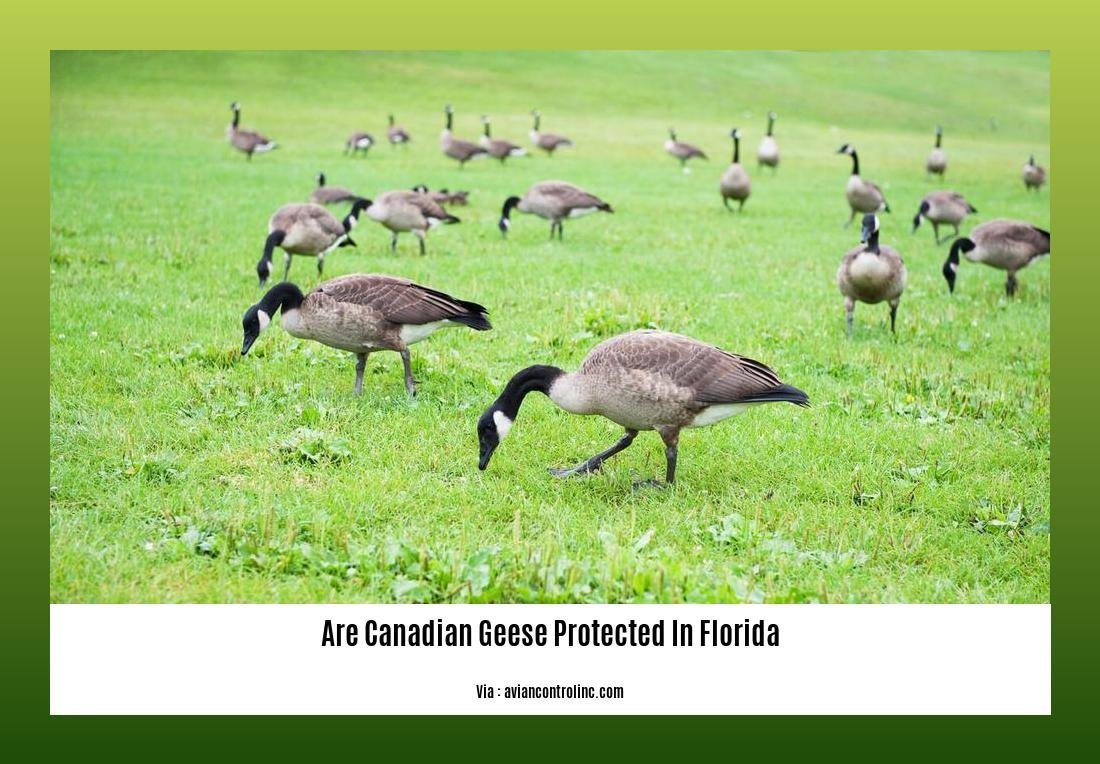
Key Takeaways:
– Canadian geese are protected in Florida under the Migratory Bird Treaty Act (MBTA) and Florida Rule 68A-16, which prohibits approaching or feeding them.
– Canadian geese are not native to Florida but can be found in the state throughout the year.
– They use adaptations such as flying in V formations during migration to conserve energy and find food sources.
– Canadian geese in Florida are year-round residents and do not migrate.
– Conservation efforts for Canadian geese are important to maintain a balanced ecosystem.
Florida, with its diverse ecosystem and wetlands, is home to various bird species, including the iconic Canadian geese. Understanding the habitat and behaviors of Canadian geese in Florida is crucial for appreciating their presence and implementing effective conservation strategies.
Habitat
Canadian geese are adaptable birds that can thrive in a variety of environments. In Florida, they can be found in a range of habitats, including wetlands, lakes, ponds, and urban areas. These geese prefer open spaces with access to water, where they can find food and take shelter. Their habitats often include grassy areas, where they can graze on vegetation.
Behaviors
One fascinating aspect of Canadian geese is their unique flying behavior. When migrating, they form V-shaped formations, which allows them to conserve energy and maintain communication within the flock. They also use these formations to locate food sources and navigate their migratory paths. This behavior is an adaptation that allows them to travel long distances more efficiently.
In Florida, Canadian geese are year-round residents and do not migrate. They have adapted to the state’s warm climate and can be observed throughout the year. Due to their abundance, they tend to congregate in urban areas and may even become considered a nuisance in some communities.
Conservation and Protection
Canadian geese are protected in Florida under the Migratory Bird Treaty Act (MBTA) and Florida Rule 68A-16. The MBTA is a federal law that safeguards migratory bird populations, including Canadian geese, by prohibiting activities such as hunting, capturing, or disturbing them without proper permits or licenses.
Conservation efforts for Canadian geese are crucial to maintain a balanced ecosystem. Although their population rebound and grazing habits can cause some challenges, it is essential to sustain their habitats and preserve water quality in the areas they frequent. These efforts contribute to the overall health and biodiversity of Florida’s wetlands and other natural habitats.
In conclusion, Canadian geese are protected in Florida under federal and state wildlife laws. Understanding their habitat and behaviors allows us to appreciate their presence and implement effective conservation strategies. By ensuring their protection and contributing to their habitat preservation, we can maintain the delicate balance of Florida’s ecosystems for future generations to enjoy.
Sources:
– FWC – Florida Fish and Wildlife Conservation Commission
– Bird Gap
Conservation Efforts and Initiatives for Canadian Geese in Florida
Canada geese are a protected species in Florida, with important conservation efforts and initiatives in place to ensure their wellbeing. Let’s explore the legal protection status, the significance of these birds in the ecosystem, and the measures taken to preserve their populations.
Legal Protection Status
Under the Migratory Bird Treaty Act (MBTA), both at the federal and state levels, Canada geese are protected in Florida. This act safeguards native migratory birds, including the Canada geese, and ensures their conservation and preservation. Florida has adopted the MBTA, providing additional protection for these birds. Approaching or feeding Canada geese is prohibited under Florida Rule 68A-16 to prevent disturbances and potential harm.
Importance in Conservation
Conservation efforts for Canada geese in Florida are crucial due to their significant role in maintaining healthy ecosystems and preserving biodiversity. These birds contribute to seed dispersal, nutrient cycling, and wetland productivity, helping maintain the balance of the environment. Their protection is of utmost importance to ensure the sustainability of the ecosystem.
Challenges and Urban Adaptation
Over the years, Canada geese populations have increased significantly, especially in urban landscapes. Changes in the urban environment, such as manicured lawns, stormwater retention ponds, and golf courses, have provided ideal feeding and breeding grounds for these birds. Their adaptation to suburban areas has led to a lack of natural predators, resulting in population growth and challenges in certain communities.
- Source: CBC News
Year-Round Residents and Feeding Habits
In Florida, some Canada geese are year-round residents and do not migrate like their counterparts in other regions. They primarily feed on grass but also consume other natural food sources like grains, aquatic plants, and berries. Understanding their feeding habits and habitat preferences is essential for their conservation.
Key Takeaways:
- Canada geese in Florida are protected federally under the Migratory Bird Treaty Act (MBTA) and at the state level through the adoption of the MBTA.
- Approaching or feeding Canada geese is prohibited under Florida Rule 68A-16.
- Conservation efforts for Canada geese are essential for maintaining a balanced ecosystem and preserving biodiversity.
- Canada geese have adapted to urban areas, leading to population growth and challenges in certain communities.
- Some Canada geese are year-round residents in Florida and do not migrate.
Understanding their feeding habits and habitat preferences is crucial for their conservation.
- Source: CBC News
Potential Threats and Challenges Faced by Canadian Geese in Florida
The presence of Canadian geese in Florida is a testament to the suitability of the state’s climate and resources. However, these beautiful birds face several potential threats and challenges that can impact their populations and overall well-being. Understanding these challenges is crucial to developing effective conservation measures and ensuring the long-term survival of these iconic avian species.
Habitat Loss and Degradation
The ongoing urbanization and development in Florida have led to the loss and degradation of natural habitats that Canadian geese rely on. Wetlands, marshes, and open spaces, which serve as critical foraging and breeding grounds, are rapidly disappearing due to land conversion. This loss of habitat not only limits the available resources for these birds but also increases their vulnerability to predators and other disturbances.
Human-Goose Conflict
While Canadian geese are appreciated for their beauty and grace, they can sometimes come into conflict with human activities. The geese are known to congregate in parks, golf courses, and urban areas, which can lead to issues like overgrazing, fecal contamination, and property damage. As a result, there can be conflicts between landowners, property managers, and communities seeking to mitigate these impacts while ensuring the well-being of the geese.
Predation
Predation poses a significant threat to Canadian geese populations in Florida. Although the absence of natural predators in urban areas has contributed to their population growth, other predators such as coyotes, foxes, and raccoons can have detrimental effects. The loss of habitat and open spaces has also increased the chances of predation, especially during nesting and fledgling periods when the geese are vulnerable.
Collisions with Man-Made Structures
Canadian geese often fly at low altitudes during their regular movements, making them susceptible to collisions with man-made structures like buildings, power lines, and vehicles. These collisions can result in injuries or fatalities, causing further decline in geese populations.
Inadequate Food Sources
The availability of adequate food sources is essential for the health and survival of Canadian geese. However, the loss of natural habitats and over-reliance on human-provided food can lead to imbalances in their diet. A lack of diverse food sources may result in malnutrition and weakened immune systems, making the geese more susceptible to diseases and other health issues.
Pollution and Water Quality
Canadian geese depend heavily on water bodies for feeding, resting, and breeding. Pollution from industrial, agricultural, and residential sources can negatively impact water quality, affecting not only the geese but also the overall aquatic ecosystem. Contaminated water can lead to the spread of diseases, reduced food availability, and reproductive problems for the geese.
Climate Change
Climate change presents a long-term threat to Canadian geese populations in Florida. Rising temperatures, altered precipitation patterns, and sea-level rise can result in shifts in habitat availability, changes in migration patterns, and increased vulnerability to extreme weather events. These changes can disrupt the geese’s natural behavior and compromise their ability to adapt to environmental challenges.
Impact of Non-Native Species
The introduction of non-native species can have unintended consequences for Canadian geese in Florida. For instance, the presence of Egyptian geese, a species native to Africa and the Middle East, can compete with the Canadian geese for resources and disrupt their natural behaviors. Managing and mitigating the impacts of non-native species is crucial to maintaining a balanced ecosystem for all waterfowl species.
Key Takeaways:
- Habitat loss and degradation, human-goose conflict, predation, collisions with man-made structures, inadequate food sources, pollution, climate change, and the impact of non-native species are all potential threats and challenges faced by Canadian geese in Florida.
- Conservation efforts should focus on preserving and restoring suitable habitats, managing conflicts between humans and geese, implementing measures to reduce predation risks, minimizing man-made structure collisions, promoting diverse and natural food sources, ensuring water quality, addressing the impacts of climate change, and managing non-native species.
FAQ
Q1: Are Canadian geese protected in Florida?
A1: Yes, Canadian geese are protected in Florida under the Migratory Bird Treaty Act (MBTA) and Florida’s adoption of the MBTA. It is illegal to hunt, capture, or disturb them without the appropriate permits.
Q2: Can Canadian geese be hunted in Florida?
A2: Yes, Canadian geese can be hunted in Florida during designated hunting seasons. However, hunters must possess the required licenses and permits, including a hunting license, a Florida waterfowl permit, a migratory bird permit, and a federal duck stamp.
Q3: What are the consequences for approaching or feeding Canadian geese in Florida?
A3: Approaching or feeding Canadian geese in Florida is prohibited under Florida rule 68A-16. It is important to avoid disturbing these birds to ensure their protection and conservation.
Q4: How do Canadian geese contribute to the ecosystem in Florida?
A4: Canadian geese play a significant role in the ecosystem by contributing to seed dispersal, nutrient cycling, and wetland productivity. They also provide benefits to other bird species through their presence in wetland habitats.
Q5: Why are Canadian geese common in Florida?
A5: Canadian geese are common in Florida due to the favorable climate, abundant food sources, and the lack of natural predators. These factors attract Canadian geese to the state, where they can be found in various habitats, including fields, parks, golf courses, and urban areas.
